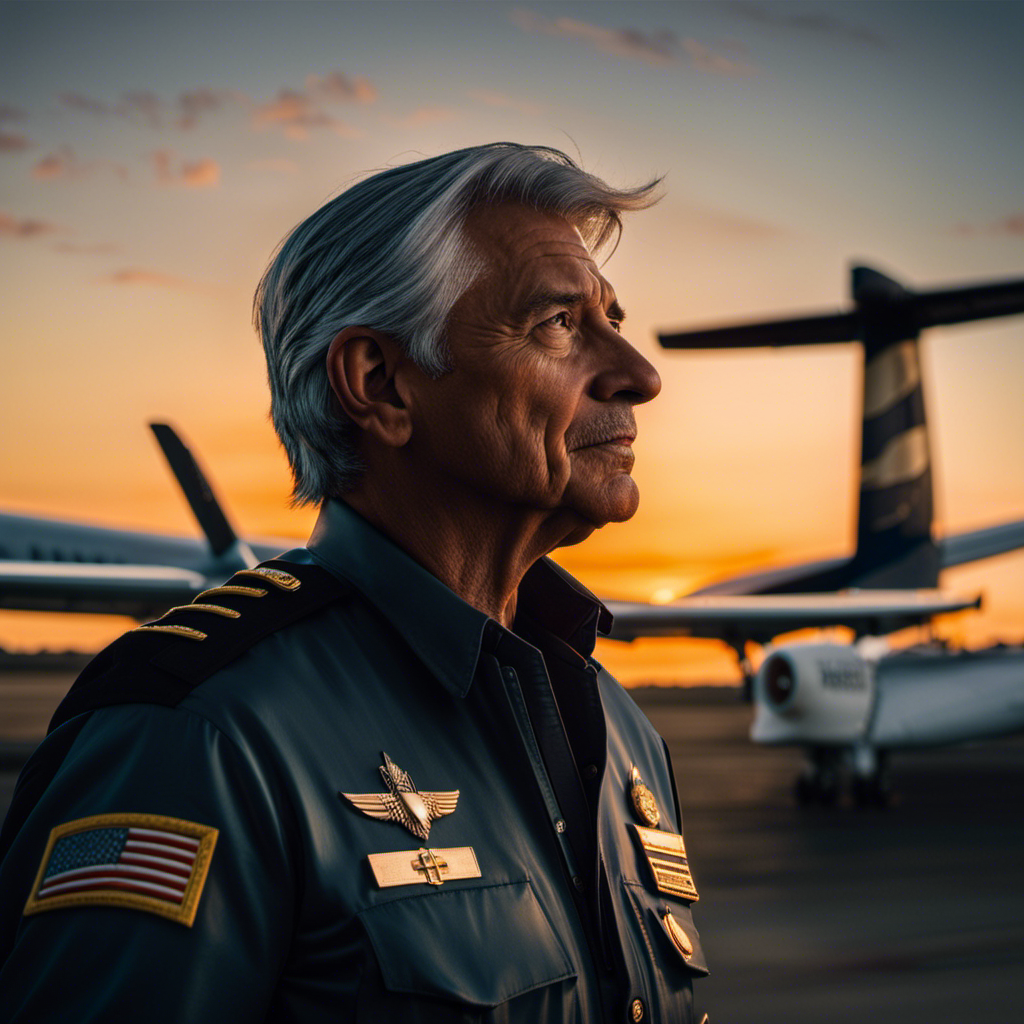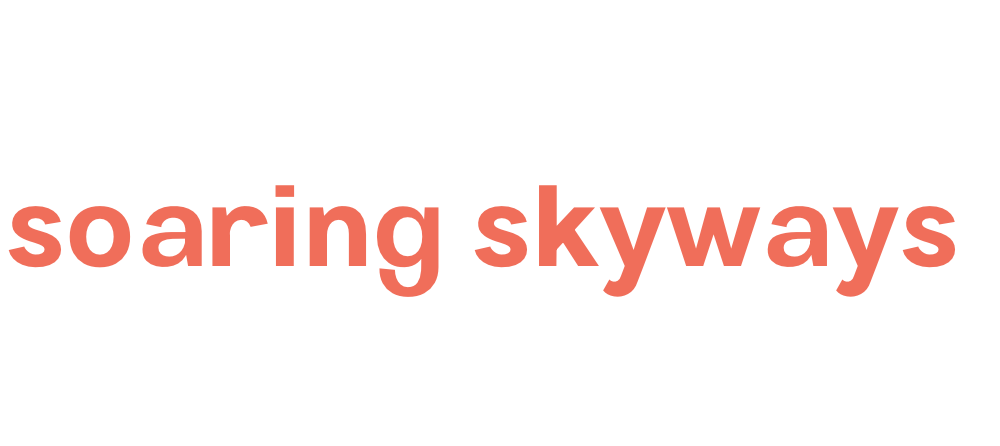Basics of Soaring and Gliding
Commercial Pilot: Is There An Age Limit To Your Dream?

As a commercial pilot, I’ve held the conviction that the possibilities are boundless in chasing one’s dreams. However, does an age restriction exist for realizing the ambition of becoming a pilot?
In this article, we will explore the importance of age restrictions in aviation, the requirements for aspiring commercial pilots, and the factors that influence these restrictions. Whether you’re starting young or considering a career change later in life, we’ll discuss the benefits and challenges you may face.
So fasten your seatbelts and join me on this journey to uncover the truth about age limits in the world of aviation.
Key Takeaways
- Health and medical certificates ensure safety of pilot and passengers
- Meeting medical standards is crucial for aspiring commercial pilots
- Research age requirements set by aviation authorities
- Age should never be a barrier in pursuing passion for flying
The Importance of Age Restrictions in Aviation
Age restrictions play a crucial role in ensuring aviation safety. These regulations are in place to prevent age discrimination and mitigate potential risks. It is important to acknowledge that certain physical and cognitive abilities are necessary to operate an aircraft safely.
While age discrimination may be a concern, age restrictions help maintain the highest level of safety standards in the aviation industry. Pilots need to be able to handle the physical demands of flying and make split-second decisions in high-pressure situations. By setting age limits, regulatory bodies aim to ensure that pilots possess the necessary skills and abilities to handle these responsibilities.
Moving forward, it is essential to explore the age requirements for aspiring commercial pilots, as these guidelines further contribute to aviation safety.
Age Requirements for Aspiring Commercial Pilots
To become a commercial pilot, you’ll need to meet certain requirements, including specific qualifications related to your aviation career aspirations.
When it comes to age requirements, the impact of age on pilot performance is a crucial consideration. Unlike some other industries that have strict age restrictions, such as the military or law enforcement, the aviation industry does not have a specific age limit for aspiring commercial pilots.
However, there are certain age-related factors that influence age restrictions in aviation. These factors include the physical and mental demands of the job, as well as the potential impact of age-related conditions on pilot performance.
Understanding these factors is essential for aspiring pilots to make informed decisions about their aviation careers.
Factors That Influence Age Restrictions
Understanding the physical and mental demands of the job is essential for aspiring pilots to make informed decisions about pursuing a career in aviation. There are several factors that influence retirement and age restrictions for commercial pilots, including the impact of technological advancements. Here are five key factors to consider:
-
Changes in aircraft technology and automation: Advances in technology have led to more efficient and automated systems, reducing the physical demands of flying and potentially extending the career lifespan of pilots.
-
Health and medical standards: Aviation authorities have specific health and medical requirements that pilots must meet to ensure they can safely operate an aircraft. These standards can influence retirement age restrictions.
-
Regulatory requirements: Aviation regulations vary across countries and can include age restrictions for certain types of aircraft or operations.
-
Industry trends and economic factors: The demand for pilots, retirement patterns, and economic conditions can all influence age restrictions and retirement policies in the aviation industry.
-
Pilot supply and demand: The availability of qualified pilots and the demand for their services can impact retirement policies and age restrictions.
Considering these factors, it is important to understand the potential impact of technological advancements on retirement policies and age restrictions for aspiring pilots.
Transitioning into the subsequent section about the benefits of starting young, it is clear that starting a pilot career early can provide advantages in terms of gaining experience and adapting to future changes in technology and regulations.
Benefits of Starting Young
By starting your pilot career at a young age, you can take advantage of early opportunities to gain experience and adapt to future changes in technology and regulations.
There are several benefits of an early start in the aviation industry. Firstly, starting young allows you to accumulate more flight hours over time, which is crucial for career progression. Additionally, you have the advantage of being able to absorb knowledge and learn new skills more easily.
As technology continues to evolve, starting young enables you to adapt quickly to new advancements and stay ahead of the curve. Moreover, beginning your pilot journey early gives you the opportunity to establish connections and build a strong network within the aviation community. With these advantages, a young start in your pilot career sets a solid foundation for future success.
As you transition into the next section, it is important to consider the challenges that come with starting later in life.
Challenges of Starting Later in Life
Starting your pilot career later in life can present unique challenges, such as limited time to accumulate flight hours and a potentially steeper learning curve. However, despite these challenges, there are still plenty of career opportunities for those who pursue their dream of becoming a commercial pilot.
Here are some of the challenges faced by those starting later in life:
- Balancing work and family responsibilities with flight training
- Adjusting to a new learning environment and studying alongside younger students
- Financial considerations, as flight training can be expensive
- Physical demands of flying, which may be more challenging as you age
- Competing with younger candidates for job opportunities in the aviation industry
Despite these challenges, many individuals have successfully transitioned to a career in aviation later in life. Now, let’s explore the exceptions to age restrictions and how they can open doors for aspiring pilots.
Exceptions to Age Restrictions
If you meet certain requirements, you can still pursue a career as a pilot regardless of your age. While there are age restrictions in place for commercial pilots, there are exceptions that allow individuals to continue flying even as they grow older. These exceptions take into consideration the impact of age on pilot performance and ensure that safety remains a top priority. To illustrate this, here is a table outlining the exceptions to age restrictions in the aviation industry:
| Exception | Age Limit |
|---|---|
| Airline Transport Pilot (ATP) Certification | No age limit |
| Part 135 Operations | 65 years old |
| Part 91 Operations | No age limit |
| Flight Instructor | No age limit |
| Recreational Pilot | No age limit |
As you can see, there are various paths within the aviation industry that do not impose age restrictions, allowing individuals to continue pursuing their passion for flying. However, it is important to note that the role of health and medical certificates plays a crucial part in ensuring the safety of both the pilot and the passengers.
The Role of Health and Medical Certificates
Transitioning from the exceptions to age restrictions, let’s now delve into the role of health and medical certificates in pursuing a commercial pilot career.
When it comes to flying an aircraft, ensuring the safety of oneself and others is paramount. As such, vision requirements play a significant role in determining one’s eligibility for a pilot’s license. Good vision, both near and far, is crucial for pilots to accurately read instruments, navigate, and maintain situational awareness.
Additionally, physical fitness is essential for pilots as they may encounter physically demanding situations during flight, such as emergency evacuations or maneuvering in adverse weather conditions. Maintaining a healthy lifestyle and meeting the medical standards set by aviation authorities is crucial for aspiring commercial pilots.
Now, let’s explore the steps to pursue a commercial pilot career at any age.
Steps to Pursue a Commercial Pilot Career at Any Age
To pursue a career as a commercial pilot at any age, you’ll need to first meet the requirements set forth by aviation authorities. Overcoming age-related obstacles may seem daunting, but it is certainly possible. Here are the steps you can take to pursue your dream:
-
Research the age requirements: Different countries and airlines may have different age limits for commercial pilots. Make sure to familiarize yourself with these requirements.
-
Obtain the necessary qualifications: Regardless of your age, you will need to obtain a private pilot license, instrument rating, and commercial pilot license. These certifications will require training and passing exams.
-
Build flight experience: Airlines often require a certain number of flight hours for commercial pilots. Take advantage of any opportunities to gain flight experience, such as flight schools or joining flying clubs.
Changing careers to become a commercial pilot has its advantages. It allows you to pursue a fulfilling and exciting profession, experience travel opportunities, and potentially earn a higher income. With determination and dedication, you can overcome any age-related obstacles and achieve your dream of becoming a commercial pilot.
Now let’s dive into the inspiring success stories of pilots who started at different ages.
Success Stories of Pilots Who Started at Different Ages
Start by reading the inspiring success stories of pilots who began their journey at different stages in life. These stories prove that starting in aviation at an older age can have its advantages. Gaining experience before pursuing a commercial pilot career allows individuals to bring a wealth of knowledge and skills to the table. It also provides them with a unique perspective and the ability to handle challenging situations with confidence. Here is a glimpse into the inspiring journeys of these pilots:
| Pilot Name | Age Started | Previous Experience |
|---|---|---|
| John Anderson | 45 | Air Force Pilot |
| Sarah Johnson | 50 | Flight Instructor |
| Robert Davis | 55 | Business Executive |
| Emily Thompson | 60 | Air Traffic Controller |
| Michael Brown | 65 | Private Pilot, Engineer |
These success stories demonstrate that age is just a number in pursuing your pilot dream. With determination and the right experience, anyone can achieve their goals in the aviation industry.
Conclusion: Age is Just a Number in Pursuing Your Pilot Dream
You can achieve your pilot dream at any age, as these success stories have shown. Age should never be a barrier when it comes to pursuing your passion for flying. While some industries may have age restrictions, the aviation industry is open to individuals of all ages who meet the necessary requirements.
Overcoming age stereotypes is possible by showcasing your skills, experience, and dedication to becoming a pilot. It is important to remember that flying a plane requires a high level of knowledge, skill, and responsibility, regardless of age. Many pilots have started their training later in life and have gone on to have successful careers in aviation.
Frequently Asked Questions
What are the specific age requirements for aspiring commercial pilots?
The age requirements for aspiring commercial pilots vary depending on the country and the type of license. Generally, the minimum age is 18 for a private pilot license and 23 for an airline transport pilot license. There may be exceptions based on experience and qualifications.
Are there any exceptions to the age restrictions for becoming a commercial pilot?
There are exceptions to the age restrictions for becoming a commercial pilot. However, it’s important to note that these exceptions are case-specific and depend on factors such as prior experience, qualifications, and individual circumstances.
What are the benefits of starting a commercial pilot career at a young age?
Starting a commercial pilot career at a young age offers numerous benefits and opportunities. These include faster career progression, longer flying career, higher earning potential, and the ability to gain more experience and develop advanced skills early on in one’s career.
What challenges may individuals face if they decide to start their pilot career later in life?
Challenges faced when starting a pilot career later in life include: longer training time, physical demands, competition with younger pilots, and potential difficulty in adjusting to new technology. However, pursuing career aspirations is still possible and fulfilling.
Can individuals pursue a commercial pilot career at any age, regardless of their previous experience or background?
Individuals can pursue a commercial pilot career at any age, regardless of their previous experience or background. Starting young offers benefits like longer career potential, while starting later may present challenges such as adapting to new technology and competing with younger, more experienced pilots.
Conclusion
In conclusion, age should never limit one’s dreams of becoming a commercial pilot. As the saying goes, ‘Age is just a number.’ Take the story of Captain John, who at the age of 52, finally pursued his lifelong dream of flying.
Despite the challenges and initial doubts, he persevered and became an inspiration to many aspiring pilots. Just like a well-aged wine, experience and determination can enhance one’s abilities in the aviation industry.
So, whether you’re young or old, it’s never too late to reach for the skies and make your pilot dream a reality.
With a heart that soars as high as the skies, Aria, affectionately known as “Skylark,” is the driving force behind Soaring Skyways. Her journey into the gliding world began as a young dreamer gazing up at the soaring birds, yearning to experience the weightlessness and freedom they embodied. With years of experience both in the cockpit and behind the scenes, Aria’s commitment to the gliding community is unwavering.






